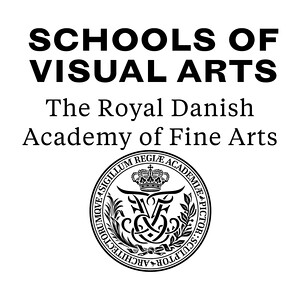Application period: January 7–25, 2019
Kongens Nytorv 1
1050 Copenhagen
Denmark
The Royal Danish Academy of Fine Arts, est. in 1754, is a state driven higher education. The three-year international MFA study program has four professional specializations: Sculpture, Painting, Media Arts, Conceptual & Contextual Practices. The institution offers an international environment with ongoing research based activities: International guest teachers and faculty are the core components of the MFA program; Artistic research is a strategic priority and is monitored at the the academy’s Institute for Art, Writing and Research, housing a number of PhD students and offering courses in writing, art theory and research based practice.
Managing one of Scandinavia’s largest spaces for contemporary art, Kunsthalle Chalottenborg, the institution and its students have a natural interaction with the public through talk and exhibition programs, and every spring the Kunsthalle houses the Academy’s MFA degree show.
The Royal Danish Academy of Fine Arts offers workshop facilities in Ceramics, Construction, Wood, Plaster, 3D, Printing and Graphic practices, Painting and Colour, Video/film, Photography and Sound, manned by associate professors specializing in the relevant disciplines.
MFA programs
Sculpture: Prof. Henrik Plenge Jakobsen
The Royal Danish Academy of Fine Arts’ School of Sculpture focuses on artistic practices that engage with three dimensions. The core field of study is sculpture, objects, installations and art in public spaces. The School of Sculpture adheres to the fundamental premise that the Academy is a place where ideas can be explored and exchanged in a conducive social setting, thereby seeking to create a critical field that investigates and discusses the future of three-dimensional art.
Media Arts: Prof. Angela Melitopoulos
The School of Media Arts investigates the specificity of media as a field in the arts and art more generally as an interdisciplinary field of research which embraces the ecology of the mind and the critical potential in techno-sciences, anthropology, philosophy, and other disciplines. We aim to invent a new toolbox for fostering experimental artistic practice—an assemblage—that goes beyond technical structures, creating a zone of connectivity and social relations between human and non-human actors.
Conceptual and Contextual Practices: Prof. Carla Zaccagnini
The main focus of the The School of Conceptual and Contextual Practices’ program is in challenging the positions from which we think and work. On the one hand, this means to question hegemonic readings of art, history, theory and territory, proposing alternative narratives from a non-Eurocentric, post-colonial, anti-imperialist, queer-feminist, anthropophagic perspective. On the other hand, it also means to disrupt the flow of decisions that lead from an idea to a finalized work and rethink the mechanisms through which it becomes public; questioning solutions that might be used by default, subverting the normalized order of thoughts, and suspecting any assumptions of what can result from artistic research.
Painting and Pictorial Practises: Prof. Ferdinand Ahm Krag
The School of Painting and Pictorial Practices is based on the following image understanding: before the image is considered a market object or contemplative object, it is considered in its doing. Whether it is an image on Instagram, a piece of Celtic ornamentation, a physical painting or a press image, these images are each in their way agent forms that create worlds—ie. an image is a fundamental form of doing, that establishes an affect, a context, a recipient relationship, a political misguidedness or an inner stirring of a spiritual nature. The relevant art pedagogical fundamental question for the school is as follow: How can we perceive and challenge the already existing forms of the image and, in this process, develop images that create worlds of new forms of doing?
More info:
MFA program and specializations
Admission procedure

